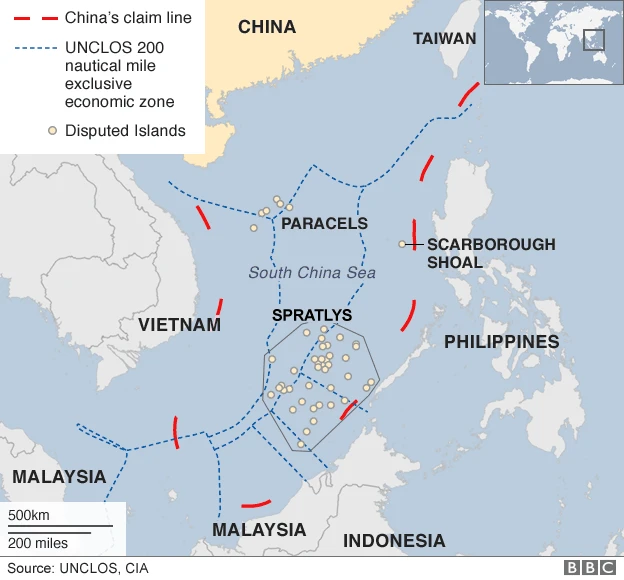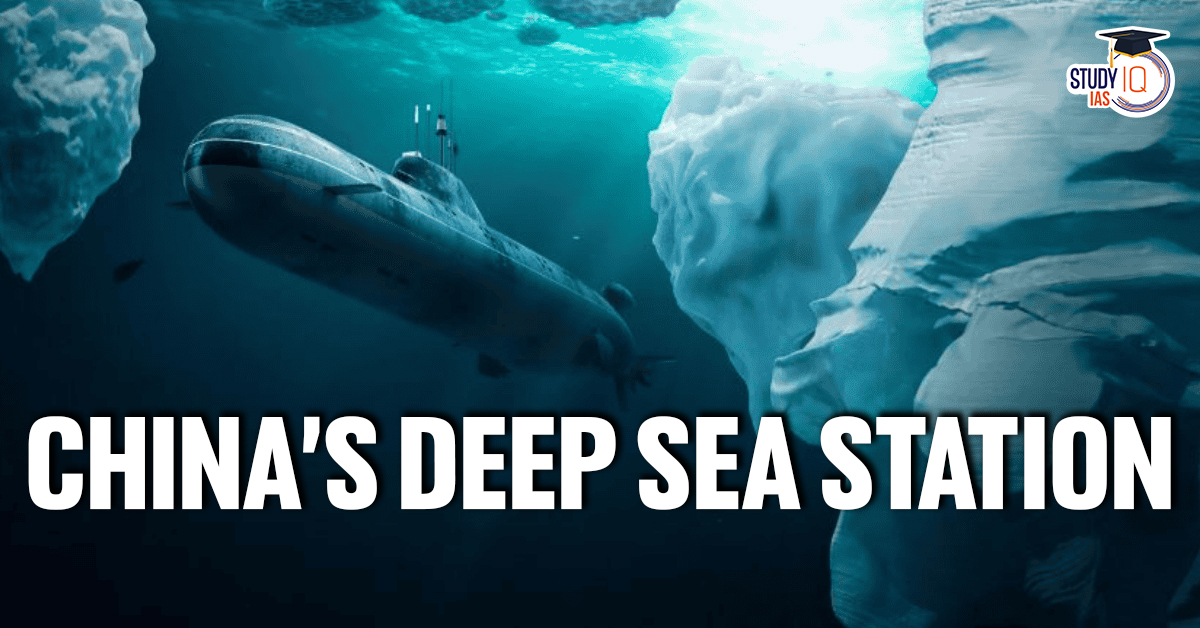Table of Contents
China’s Deep Sea Station: In a major technological and geopolitical move, China is constructing the world’s first permanent undersea research station in the South China Sea (SCS). This deep-sea station aims to study and eventually harness gas hydrates (also known as methane hydrates) — a potential game-changer in the global energy sector.
This development holds profound implications for energy security, marine science, and regional geopolitics, especially in a region as contested as the South China Sea.
What Is China’s Deep Sea Research Station?
China’s deep sea research station is a permanent, manned undersea facility being established in the South China Sea, designed to:
-
Study the composition and extraction potential of gas hydrates.
-
Collect geological, chemical, and environmental data from the seabed.
-
Advance deep-sea exploration and energy extraction technologies.
This is the first of its kind globally, marking a significant step in China’s ambition to become a global leader in marine and energy technology.

Why the South China Sea?
The South China Sea is believed to be rich in natural resources, especially methane hydrates, making it a prime location for deep-sea research. However, the region is highly disputed, with overlapping territorial claims by:
-
China
-
Taiwan
-
Vietnam
-
Philippines
-
Malaysia
-
Brunei
China’s activities in the region — including island-building and military infrastructure — have drawn criticism from neighboring nations and the global community. The undersea station is likely to raise further strategic and diplomatic concerns.
What Are Gas Hydrates (Methane Hydrates)?
Gas hydrates are crystalline, ice-like solids where methane molecules are trapped inside cages of water molecules. They are typically found:
-
Under deep-sea sediments along continental margins
-
In permafrost regions of the Arctic
Key Features:
-
Stable under high-pressure and low-temperature conditions.
-
Can release methane — a clean-burning fuel — when decomposed.
-
Estimated to contain more energy than all other fossil fuels combined.
Why Are Gas Hydrates Important?
-
Huge Energy Potential: Methane hydrates could provide centuries’ worth of energy if tapped efficiently.
-
Clean Energy: Methane is a cleaner fuel than coal or oil, reducing carbon emissions.
-
Energy Security: Nations with access to gas hydrate reserves can reduce dependence on oil imports.
-
Technological Innovation: Extraction requires advanced, unconventional methods, spurring innovation in drilling and oceanography.
Global and Indian Context
China’s Strategy:
-
Invest heavily in deep-sea mining and gas hydrate extraction.
-
Use research stations to claim maritime rights under the guise of science.
-
Position itself as a maritime power in Asia.
India’s Gas Hydrate Reserves:
India also has substantial methane hydrate deposits, notably in:
-
Krishna-Godavari (KG) Basin
-
Andaman and Nicobar Islands
India, in collaboration with countries like the USA and Japan, is conducting exploration and feasibility studies to harness these resources in the future.
Challenges of Extracting Gas Hydrates
-
High cost and technological complexity
-
Risk of methane leakage, a potent greenhouse gas
-
Potential for seafloor instability and environmental harm
-
Need for international regulatory frameworks
Geopolitical Implications
China’s deep-sea station is not just about energy — it’s a geostrategic assertion in a highly militarized zone. By cementing its presence undersea, China is:
-
Strengthening its maritime claims
-
Enhancing its naval surveillance and research capabilities
-
Creating potential conflicts with ASEAN nations and the USA
Conclusion
The establishment of the world’s first permanent deep sea station by China to study gas hydrates is a bold step toward the future of energy exploration. However, it is intertwined with complex geopolitical, environmental, and technological challenges. As the world watches, countries like India must accelerate their efforts in methane hydrate research, both for energy security and strategic parity.


 World Immunization Week (24 to 30 April)...
World Immunization Week (24 to 30 April)...
 National Panchayati Raj Day (24th April)...
National Panchayati Raj Day (24th April)...
 Understanding Type 5 Diabetes: The Malnu...
Understanding Type 5 Diabetes: The Malnu...






















